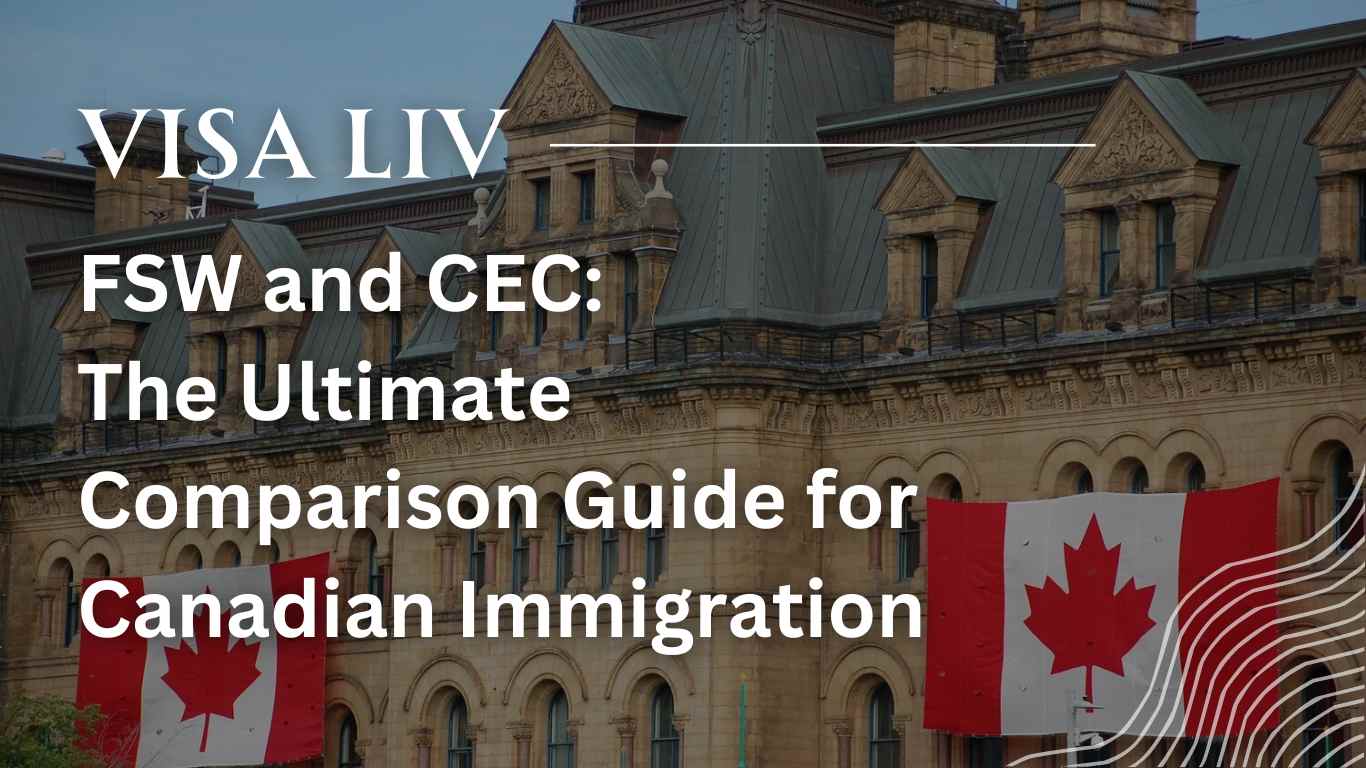Introduction:
If the idea of immigrating to Canada has been on your mind, you’ve likely come across two popular pathways: the Federal Skilled Worker (FSW) program and the Canadian Experience Class (CEC) program. Both offer a route to permanent residency, but they come with distinct eligibility requirements and considerations. In this comprehensive guide, we’ll delve into the specifics of these immigration pathways to help you make an informed decision on which one aligns best with your aspirations.
Federal Skilled Worker (FSW) Program:
The Federal Skilled Worker program is designed to attract skilled workers who can contribute to Canada’s economy. To be eligible for this program, you must meet the following criteria:
- Work Experience: You must have at least one year of continuous full-time work experience (or an equivalent amount of part-time experience) in a skilled occupation listed in the National Occupational Classification (NOC) system. This work experience can be acquired either within or outside Canada.
- Language Proficiency: Proficiency in either English or French is crucial. You’ll need to demonstrate your language skills through standardized language tests.
- Educational Credential Assessment (ECA): If your education was completed outside of Canada, you’ll need to obtain an Educational Credential Assessment (ECA) to validate your foreign educational qualifications.
Canadian Experience Class (CEC) Program:
The Canadian Experience Class program is tailored for temporary residents who have gained valuable work experience in Canada. To qualify for this program, you should meet the following requirements:
- Work Experience: You must have at least one year of skilled work experience gained within the past three years while holding a valid work permit in Canada. This experience should align with the requirements set by the NOC, encompassing factors like skill level, job duties, and duration.
- Language Proficiency: Similar to the FSW program, proficiency in English or French is essential. Applicants need to meet the minimum language requirements through approved language tests.
Comparing FSW and CEC:
Here’s a quick overview of the key distinctions between the FSW and CEC programs:
- Work Experience Requirement: FSW accepts work experience acquired both inside and outside Canada, while CEC mandates at least one year of Canadian work experience obtained inside Canada.
- Educational Assessment: FSW applicants require an Educational Credential Assessment (ECA) for foreign educational credentials, whereas CEC applicants are not obliged to provide an ECA. However, having Canadian education can be advantageous.
- Job Offer: For FSW applicants, a valid job offer is not obligatory but can substantially enhance your Comprehensive Ranking System (CRS) score. Conversely, CEC applicants do not need a job offer, as the program primarily caters to individuals with Canadian work experience.
How to Apply:
Both the FSW and CEC programs are managed through the Express Entry system. To initiate your application, follow these steps:
- Create an Online Profile: Begin by creating an online profile and ensure you meet the minimum eligibility requirements.
- Comprehensive Ranking System (CRS): Under the CRS, you need to score at least 67 points based on factors like age, education, work experience, language proficiency, and adaptability.
- Invitation to Apply (ITA): If your CRS score meets the cutoff, you may receive an Invitation to Apply (ITA) for permanent residency. You’ll have 60 days to submit your complete application.
Tips for Success:
To maximize your chances of success in either the FSW or CEC program, consider the following tips:
- Enhance Language Skills: Since English and French are Canada’s official languages, strong language skills are vital. Take standardized language tests, such as IELTS or TEF, to prove your proficiency.
- Educational Credential Assessment (ECA): If your education was completed outside Canada, obtain an ECA from a designated organization to validate your foreign educational qualifications.
- Job Offer: While not mandatory, securing a job offer from a Canadian employer can significantly boost your CRS score. Start networking and job searching, especially if you’re applying through the FSW program.
Conclusion:
The FSW and CEC programs both offer excellent pathways to achieve permanent residency in Canada. Your choice between the two should align with your unique background, goals, and experiences. Remember that these programs can change over time, so always consult the Immigration, Refugees, and Citizenship Canada (IRCC) website or seek guidance from an immigration consultant for the latest information and personalized advice. Your Canadian dream awaits!
Please visit our website www.visaliv.com for more details, where you will find answers to all of your visa and immigration-related questions.
Thanks,
VisaLiv Team

